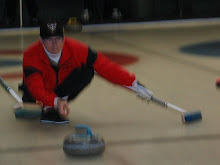A few weeks ago I posted about Stacey Kaniuk stealing the show at the Aurora Jazz Festival with a smoking rendition of a James Brown classic. Here is the video of that performance:
September 21, 2010
Woman's world
Tonight's retro playlist:
Kayleigh, by Marillion (this song got stuck in my head for days a few weeks ago)
(I Just) Died In Your Arms, by Cutting Crew (I just like this one)
Dance Desire, by Haywire (best song opening ever)
Don't Forget Me (When I'm Gone), by Glass Tiger (most famous band from closest to where I live ever)
Turn It Loud, by Headpins (turn it up - just do it)
Whatcha Do To My Body, by Lee Aaron (hottest rock chick ever)
Roxy Roller, by Sweeny Todd (sung by Nick Guilder - for years I thought it was a chick)
Fantasy, by Aldo Nova (most pretentious video ever)
Lunatic Fringe, by Red Rider (most boring video ever)
Fox On The Run, by The Sweet (worst sound ever, but I like this song)
What's your retro playlist?
September 11, 2010
In remembrance
...and in support of those who grieve:
http://awvarchive.blogspot.com/2005/09/now-of-it-all.html
http://awvarchive.blogspot.com/2006/09/weekend-assignment-remembering.html
Those posts now reside in an archive of the original Aurora Walking Vacation blog. If you feel moved to comment, please do so here, rather than there.
September 02, 2010
The ABCs of Curling - Z
 is for Zhou, as in Zhou Yan, lead on the 2009 women's world champions from China. Zhou, and her teammates Yue Qingshuang, Liu Yin and Wang Bingyu burst onto the international curling scene in 2005, winning the Pan-Pacific Championships. They had been curling for only four years. The Chinese experience is but the most notable of what has been a recent explosion of popularity of curling around the world.
is for Zhou, as in Zhou Yan, lead on the 2009 women's world champions from China. Zhou, and her teammates Yue Qingshuang, Liu Yin and Wang Bingyu burst onto the international curling scene in 2005, winning the Pan-Pacific Championships. They had been curling for only four years. The Chinese experience is but the most notable of what has been a recent explosion of popularity of curling around the world.
There was international curling in the early days of the twentieth century, but it was usually confined to a team visiting another country and touring around playing exhibition games in various clubs. This happened numerous times between Canadian and Scottish clubs during the first half of the century. Curling was also contested at the 1924 and 1932 Olympics. In fact, in 2006 the IOC declared the 1924 result to have been "official" and awarded medals - for most, posthumously, I suspect. In 1959, an international championship, the "Scotch Cup" was inaugurated, having developed out of a semi-regular Canada vs. Scotland contest over the previous decade. The Scotch Cup grew from two to eight countries, and led to the formation of an International Federation.
The World Curling Federation was formed in 1966 (originally as the International Curling Federation), with seven members: Scotland, Canada, France, Sweden, Switzerland, Norway, and the United States. Germany joined a year later, and membership stayed at eight until the seventies. For three decades, growth was slow, with six new national organisations joining in the seventies, and only five in the eighties. And then, something happened. Thirteen new member nations joined the WCF during the nineties, another fifteen in the 2000s, and eighteen more since 2010.
What happened? Why, the Winter Olympics happened. Curling returned, after an absence of 64 years, as a demonstration sport at the 1988 games in Calgary, and again at the 1992 games in Albertville. It was made a full medal sport just in time for the 1998 games in Nagano. It has proved to be more popular with the fans at every games since. So much so that during the 2010 tournament the players had difficulty hearing themselves over the raucous, capacity crowds filling the venue.
Recent additions to the roster of WCF member nations, along with China, include Mongolia in 2012, Qatar in 2014, Mexico in 2016, and most recently, Kuwait and India. Most of those countries have only a handful of curlers, but significant growth is only a matter of time. Take Brazil, for example. The Brazilian Ice Sports Federation has been an official member of the WCF since 1998, but for years the address listed for them on the WCF website was a post office box in Norwell, Massachusetts. All that changed in a big way in 2010. In August of 2010, Nutrogena hosted a ten day, open to the public curling clinic in a local mall in Sao Paulo. Several Canadian and Norwegian curlers and coaches were on hand to not only teach people how to curl, but to train local coaches to carry on without them. Reportedly several hundred people tried the game over the course of the event, and the Brazilians will be left with a solid base upon which to build. Will we see a Brazilian curling team competing at the Olympics any time soon? At first it sounds farfetched, but considering the success of Zhou Yan and friends, maybe not so much.
Time will tell.
[edited 09/23/2019 to update WCF membership information]
Start at the beginning






